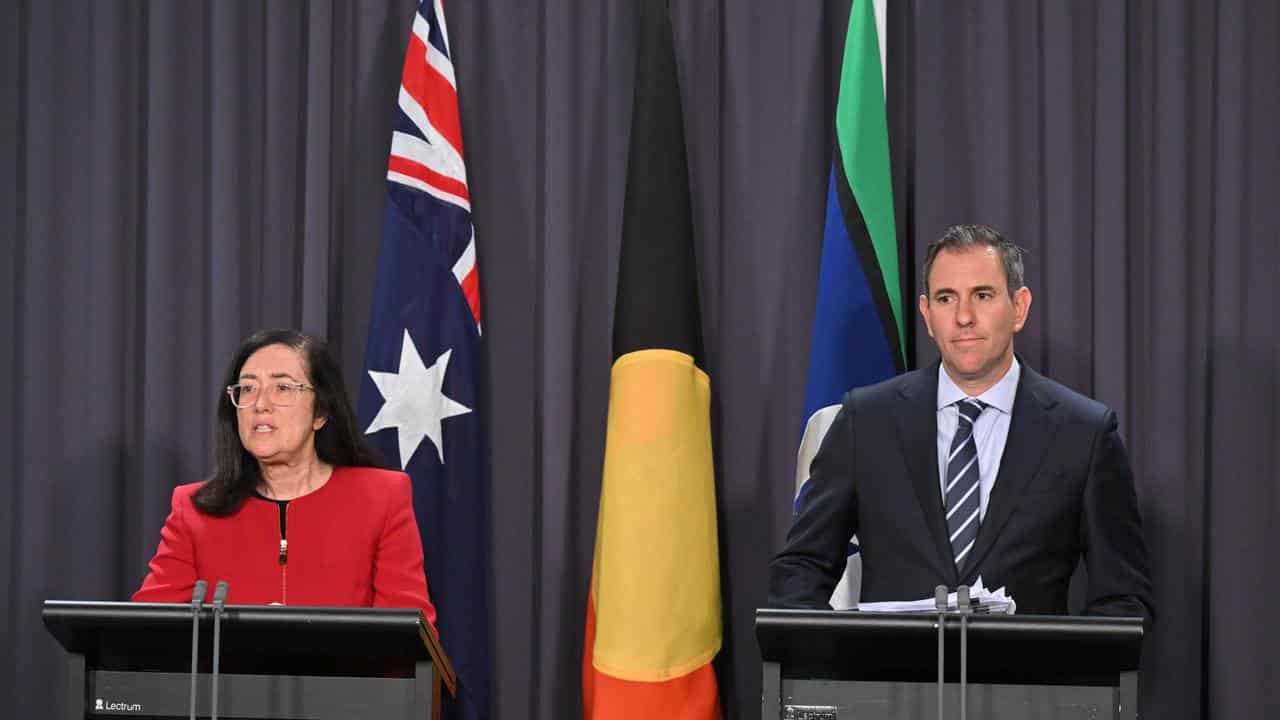
Every supermarket merger will be scrutinised under new laws designed to drive down prices and keep ownership concentration in check.
The supermarket sector, dominated by a few giants, has been singled out by the federal treasurer as he introduced to parliament on Thursday the biggest reforms to Australia’s merger settings in decades.
Jim Chalmers maintains the rules underpinning business mergers are falling short - neither effective at stopping anti-competitive business combinations, nor at letting unproblematic deals glide through without delay.
Replacing voluntary notification with a mandatory regime is a key change, along with empowering the Australian Competition and Consumer Commission as the decision maker.
"Many transactions that pose real risks to competition the ACCC doesn't see, can't review and can't ensure that the proper protection is in place for competition, for consumers, for greater choice and for lower prices," chair Gina Cass-Gottlieb said.
She said there were many cases across the economy, from cancer radiology to pathology, supermarkets and petrol stations, where deals had gone through unbeknown to the competition watchdog.
"Petstock amassed the second-largest chain of pet products across Australia with no notification whatsoever," Ms Cass-Gottlieb said.
The new powers will ensure the regulator is notified of every merger in the supermarket sector but the treasurer will also be able to prescribe mandatory notification for mergers in other industries.
Too many potentially damaging mergers were slipping through the cracks, Dr Chalmers said.
"This is about approving the good ones faster and catching the damaging ones where we can," he said.
The changes would ensure supermarkets were as competitive as they could be so Australians got the best prices possible, he said.
Not all mergers will be captured - only deals above certain financial thresholds.

Yet there would be enough flexibility to allow the treasurer to adjust those thresholds to allow the ACCC to "review all the mergers that they have been typically concerned about".
The Business Council of Australia said the legislation was a step in the right direction but the proof would be in its implementation.
"Over 90 per cent of mergers that are currently assessed by the ACCC are cleared, and in fact help drive better outcomes across our economy," Council chief executive Bran Black said.
Supermarkets have already been in the firing line, with the ACCC accusing Coles and Woolworths of breaking consumer law by duping customers with misleading discounts on hundreds of products.
The government has launched several reviews and inquiries into the sector and a draft mandatory code of conduct is due later in 2024.
Most Australian sectors are dominated by a few big players and Treasury research suggests a lack of competition increases the cost of doing business and can lead to higher prices and lower wage growth.
The government still faces an uphill battle to push the bill through the Senate.

The federal opposition and Greens are calling for divestiture powers to break up supermarkets but the ACCC has favoured stronger merger laws to stop larger players absorbing smaller competitors in the first place.
"Big corporations already hold too much power, and simply trying to prevent them from getting bigger won’t fix the problem," Greens Senator Nick McKim said.









